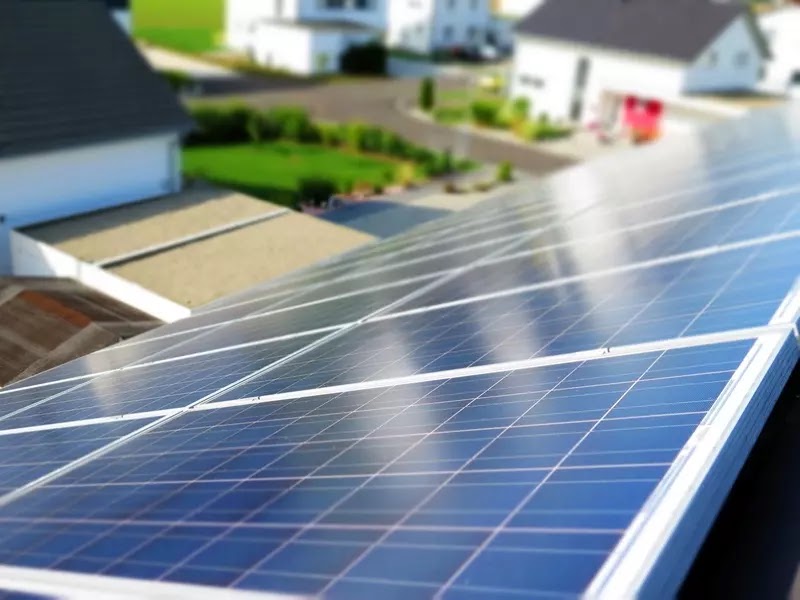As the world becomes more aware of the negative impact of fossil fuels on the environment, the demand for alternative power sources has skyrocketed. The shift towards renewable energy has been gaining momentum for several years, and today, it is more important than ever before. Alternative power sources are sustainable, clean, and readily available, making them the ideal choice for a greener future.
Why Alternative Power Sources Are Important
The world has been dependent on fossil fuels for decades, but the negative impact of these sources of energy on the environment cannot be ignored. Fossil fuels such as oil and coal release harmful greenhouse gases into the atmosphere when burned, leading to global warming and climate change. This, in turn, has led to a rise in sea levels, extreme weather conditions, and the extinction of several species of animals.
Alternative power sources are sustainable and clean, and they do not harm the environment in the same way as fossil fuels. Renewable energy sources such as solar, wind, hydro, geothermal, and biomass energy are all examples of alternative power sources that can be used to generate electricity.
Advantages of Alternative Power Sources
Alternative power sources have several advantages over traditional sources of energy. Here are some of the most significant benefits of renewable energy:
- Sustainable: Alternative power sources are sustainable and can be replenished over time. Fossil fuels, on the other hand, are finite resources that will eventually run out.
- Clean: Renewable energy sources do not release harmful greenhouse gases into the atmosphere when used, making them much cleaner than traditional sources of energy.
- Cost-Effective: Alternative power sources are becoming more affordable, and the cost of renewable energy is expected to continue to fall in the coming years.
- Creates Jobs: The shift towards renewable energy sources has the potential to create thousands of new jobs in industries such as solar and wind power.
- Reduces Dependency on Fossil Fuels: The use of renewable energy sources reduces our dependence on fossil fuels and helps to reduce carbon emissions.
What are the different types of alternative energy?
There are several different types of alternative energy sources that can be used to generate electricity, including:
- Solar energy - energy from the sun, harnessed through solar panels
- Wind energy - energy from wind turbines
- Hydro energy - energy from the flow of water through hydroelectric dams
- Geothermal energy - energy from the heat generated by the Earth's core
- Biomass energy - energy generated from organic matter, such as wood, crops, and agricultural waste.
These alternative energy sources are renewable and produce little to no harmful emissions, making them a cleaner and more sustainable choice compared to traditional fossil fuels.
1. Solar Power
Solar power is one of the most widely used alternative power sources today. It is clean, renewable, and has the potential to be harnessed in almost every part of the world. Solar panels are installed on rooftops, and the energy generated by them can be used to power homes, businesses, and even entire cities.
Solar power is becoming more affordable, and the cost of solar panels has fallen by almost 90% in the last decade. Solar power is also becoming more efficient, and new technologies are being developed to increase the efficiency of solar panels.
2. Wind Power
Wind power is another popular alternative power source. Wind turbines are installed in areas with strong winds, and the energy generated by them can be used to power homes and businesses. Wind power is clean, renewable, and has the potential to be harnessed in almost every part of the world.
The cost of wind power has fallen in recent years, making it more affordable for consumers. The efficiency of wind turbines has also increased, and new technologies are being developed to increase their efficiency further.
3. Hydro Power
Hydro power is generated by the movement of water, and it is one of the oldest sources of renewable energy. Hydroelectric dams are built on rivers, and the energy generated by the movement of water is used to power homes and businesses.
Hydro power is clean and renewable, and it has the potential to generate large amounts of energy. However, it can also be expensive to build hydroelectric dams, and they can have a significant impact on the environment.
4. Geothermal Power
Geothermal power is generated by the heat that is naturally produced within the Earth. Geothermal power plants are built in areas with high levels of geothermal activity, such as near hot springs or geysers. The heat produced by the Earth is used to generate steam, which in turn powers turbines that generate electricity.
Geothermal power is a clean and renewable energy source, and it is also highly efficient. It is not as widely used as solar and wind power, but it has the potential to become an important alternative power source in the future.
5. Biomass Energy
Biomass energy is generated by burning organic matter such as wood, crops, and agricultural waste. The energy released by burning biomass is used to generate heat and electricity. Biomass energy is renewable, and it is often considered to be carbon-neutral because the carbon dioxide released during the burning process is offset by the carbon dioxide absorbed by the plants that are used to generate the biomass.
Biomass energy can be used on a small scale, such as in a home or a farm, or on a larger scale to power entire communities.
Conclusion
Alternative power sources are the future of energy. They are sustainable, clean, and readily available, making them the ideal choice for a greener future. Solar power, wind power, hydro power, geothermal power, and biomass energy are all examples of alternative power sources that can be used to generate electricity. By using alternative power sources, we can reduce our dependence on fossil fuels and help to protect the environment for future generations.


Comments
Post a Comment